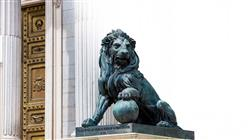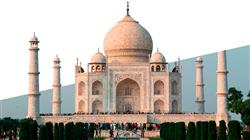University certificate
Accreditation/Membership
The world's largest faculty of humanities”
Introduction to the Program
Are you passionate about art and want to work on excavations around the world? This program will help you achieve it"

Art has become a universal means for human beings to express themselves. This has been the case since the era of the first men, who painted their experiences in caves to tell others where food was stored or even how to properly hunt prey. Therefore, drawing techniques have been fundamental for the development of archeology, since they allow us to understand concepts that cannot be expressed in words.
In this sense, studying history through Art and Archeology is fundamental to organize the information in a coherent manner and favor the transmission of knowledge to future generations. In addition to training any specialist to carry out studies to determine the veracity of a canvas or to participate in its restoration. For all these reasons, this Master's Degree has been designed to help students achieve various professional objectives, from participating in Greco-Roman-inspired urban planning works to working on archeological excavations from anywhere in the world.
Thus, the program begins by exploring the contributions of ancient history and its influence on the cultural, political and socioeconomic foundations of today, prioritizing the lines of thought of each people. Then, the origins of the history of art and certain basic elements of anthropology and archeology will be analyzed, the former being responsible for studying the human being in an integral way, taking into account the feature that they do not share with animals: culture.
A distinction will also be made between the art and culture of India, Africa, Asia and the Middle East, taking into account a key period in these societies: the Middle Ages. On the other hand, students will be motivated to recognize the characters of classical mythology, such as Zeus, Hera, Poseidon, among others; comparing their iconographies with those found in the Christian religion.
This program covers all the relevant topics to help students develop in different research and cultural development projects, offering a complete agenda that adapts to the needs of the professional field. All this, moreover, condensed in a completely online modality and with continuous access regardless of the place where the future graduate is located.
History, from an artistic point of view, helps to understand the form of communication of ancient civilizations"
This Master's Degree in Art and Archeology contains the most complete and up-to-date scientific program on the market. The most important features include:
- The development of case studies presented by experts in art and archeology
- The graphic, schematic, and eminently practical contents with which they are created, provide scientific and practical information on the disciplines that are essential for professional practice
- Practical exercises where self-assessment can be used to improve learning
- Its special emphasis on innovative methodologies
- Theoretical lessons, questions to the expert, debate forums on controversial topics, and individual reflection assignments
- Content that is accessible from any fixed or portable device with an Internet connection
To be able to distinguish the iconographic elements and to which period they belong is a great quality of the artists"
The program’s teaching staff includes professionals from the sector who contribute their work experience to this training program, as well as renowned specialists from leading societies and prestigious universities.
The multimedia content, developed with the latest educational technology, will provide the professional with situated and contextual learning, i.e., a simulated environment that will provide immersive training programmed to train in real situations.
This program is designed around Problem-Based Learning, whereby the professional must try to solve the different professional practice situations that arise during the academic year. For this purpose, the student will be assisted by an innovative interactive video system created by renowned and experienced experts.
You will have access to the virtual classroom from anywhere in the world. Register now to get started"

You will learn, through case studies, how to differentiate between different cultures and civilizations"
Why study at TECH?
TECH is the world’s largest online university. With an impressive catalog of more than 14,000 university programs available in 11 languages, it is positioned as a leader in employability, with a 99% job placement rate. In addition, it relies on an enormous faculty of more than 6,000 professors of the highest international renown.

Study at the world's largest online university and guarantee your professional success. The future starts at TECH”
The world’s best online university according to FORBES
The prestigious Forbes magazine, specialized in business and finance, has highlighted TECH as “the world's best online university” This is what they have recently stated in an article in their digital edition in which they echo the success story of this institution, “thanks to the academic offer it provides, the selection of its teaching staff, and an innovative learning method aimed at educating the professionals of the future”
A revolutionary study method, a cutting-edge faculty and a practical focus: the key to TECH's success.
The most complete study plans on the university scene
TECH offers the most complete study plans on the university scene, with syllabuses that cover fundamental concepts and, at the same time, the main scientific advances in their specific scientific areas. In addition, these programs are continuously being updated to guarantee students the academic vanguard and the most in-demand professional skills. In this way, the university's qualifications provide its graduates with a significant advantage to propel their careers to success.
TECH offers the most comprehensive and intensive study plans on the current university scene.
A world-class teaching staff
TECH's teaching staff is made up of more than 6,000 professors with the highest international recognition. Professors, researchers and top executives of multinational companies, including Isaiah Covington, performance coach of the Boston Celtics; Magda Romanska, principal investigator at Harvard MetaLAB; Ignacio Wistumba, chairman of the department of translational molecular pathology at MD Anderson Cancer Center; and D.W. Pine, creative director of TIME magazine, among others.
Internationally renowned experts, specialized in different branches of Health, Technology, Communication and Business, form part of the TECH faculty.
A unique learning method
TECH is the first university to use Relearning in all its programs. It is the best online learning methodology, accredited with international teaching quality certifications, provided by prestigious educational agencies. In addition, this disruptive educational model is complemented with the “Case Method”, thereby setting up a unique online teaching strategy. Innovative teaching resources are also implemented, including detailed videos, infographics and interactive summaries.
TECH combines Relearning and the Case Method in all its university programs to guarantee excellent theoretical and practical learning, studying whenever and wherever you want.
The world's largest online university
TECH is the world’s largest online university. We are the largest educational institution, with the best and widest online educational catalog, one hundred percent online and covering the vast majority of areas of knowledge. We offer a large selection of our own degrees and accredited online undergraduate and postgraduate degrees. In total, more than 14,000 university degrees, in eleven different languages, make us the largest educational largest in the world.
TECH has the world's most extensive catalog of academic and official programs, available in more than 11 languages.
Google Premier Partner
The American technology giant has awarded TECH the Google Google Premier Partner badge. This award, which is only available to 3% of the world's companies, highlights the efficient, flexible and tailored experience that this university provides to students. The recognition as a Google Premier Partner not only accredits the maximum rigor, performance and investment in TECH's digital infrastructures, but also places this university as one of the world's leading technology companies.
Google has positioned TECH in the top 3% of the world's most important technology companies by awarding it its Google Premier Partner badge.
The official online university of the NBA
TECH is the official online university of the NBA. Thanks to our agreement with the biggest league in basketball, we offer our students exclusive university programs, as well as a wide variety of educational resources focused on the business of the league and other areas of the sports industry. Each program is made up of a uniquely designed syllabus and features exceptional guest hosts: professionals with a distinguished sports background who will offer their expertise on the most relevant topics.
TECH has been selected by the NBA, the world's top basketball league, as its official online university.
The top-rated university by its students
Students have positioned TECH as the world's top-rated university on the main review websites, with a highest rating of 4.9 out of 5, obtained from more than 1,000 reviews. These results consolidate TECH as the benchmark university institution at an international level, reflecting the excellence and positive impact of its educational model.” reflecting the excellence and positive impact of its educational model.”
TECH is the world’s top-rated university by its students.
Leaders in employability
TECH has managed to become the leading university in employability. 99% of its students obtain jobs in the academic field they have studied, within one year of completing any of the university's programs. A similar number achieve immediate career enhancement. All this thanks to a study methodology that bases its effectiveness on the acquisition of practical skills, which are absolutely necessary for professional development.
99% of TECH graduates find a job within a year of completing their studies.
Master’s Degree in Art and Archeology
Art and archaeology are disciplines that allow us to explore and understand our historical legacy, unraveling the secrets of the past. If you are passionate about these fields and wish to specialize, TECH Global University has the perfect program for you: the Master's Degree in Art and Archaeology. Our program offers you a unique opportunity to delve into the world of artistic expressions and archaeological remains. Over the course of a year, you will have the chance to explore different periods and artistic styles, as well as deepen your understanding of archaeological research techniques and methods. The best part is that you can do all of this through our virtual classes, immersing yourself in the study of art and archaeology interactively, participating in debates, analysis of works, and research projects, all guided by experts in the field.
Dive into the fascinating world of art and archaeology from the comfort of your home
Throughout the program, you will have access to digital resources and virtual libraries that will allow you to expand your knowledge and thoroughly explore the topics that interest you the most. You will also benefit from the support of a highly qualified teaching team, consisting of recognized professionals in the fields of art and archaeology. Upon completion of the program, you will receive the Master's Degree in Art and Archaeology, accredited by TECH, which will open new professional opportunities in research, teaching, cultural heritage management, and cultural tourism. Don’t miss the opportunity to deepen your understanding of the fascinating world of art and archaeology. Enroll today in our program, broaden your academic and professional horizons!







